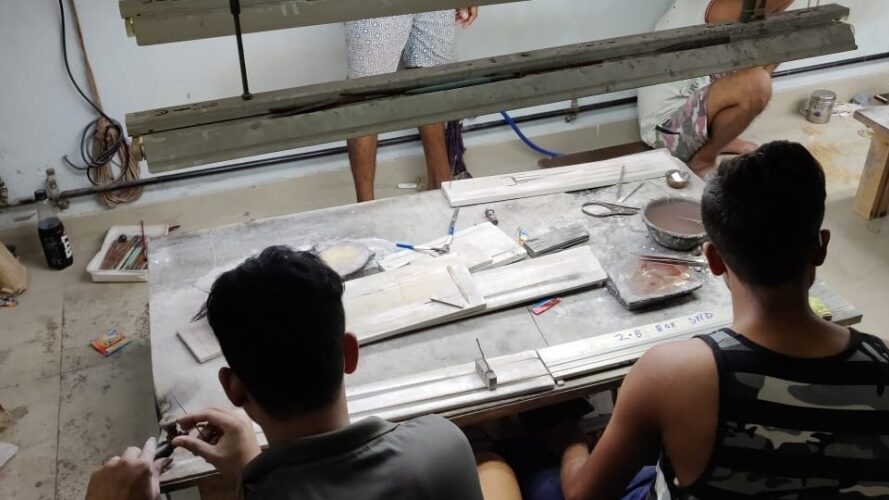44 Children and 32 Adults Freed from Jewelry Factory Slavery
Labor Trafficking
This month, local officials freed 76 victims of human trafficking—including boys as young as 10—from a group of jewelry factories profiting off forced labor for years.
The case arose when a local lawyer got an anonymous tip about dozens of boys being exploited in these factories, which he then referred to IJM’s team in Chennai. We worked with the local government to identify the target locations and conduct a rescue operation at five separate factories on September 6 and follow-up rescues at two factories on September 11.
All of these 76 boys and young men were trafficked from West Bengal, a state 1,000 miles away in northern India. They had been made to work at the factories for 14 hours a day—from 10:00 a.m. to midnight—inside locked upstairs rooms of a dingy building. They slept in one large room on thin straw mats, while factory owners monitored them constantly through CCTV cameras so they could never run away.
Each day, the boys had to make hundreds of pieces of gold jewelry—often handling harsh chemicals and breathing fine metal dust without protection. Some had been at the factories for ten years. Even on the day of rescue, they were working furiously at their stations without stopping. Many of their hands were stained, scarred and burned from this painful work.
“Most of the boys rescued are very young. When they were rescued and brought to our vehicle, they started playing—and that is how they should be,” shared one IJM staff member during the first wave of operations. “They should be allowed to enjoy and live their childhood and not made to work in hazardous conditions. They should be going to school.”
He added, “These children have been rescued from just five units. There are so many children still caught up in places they shouldn't be.”
Police have already arrested four factory owners who enslaved these boys and young men, and the suspects’ bail requests have been repeatedly denied.
Meanwhile, IJM and government officials helped the rescued boys return to West Bengal on September 13 to reunite with their families and begin recovering. When the boys heard the news they’d be going home, they danced, excitedly packed their belongings, and hugged IJM’s staff with joy.
Next, IJM’s team in Kolkata will help find livelihood options for these survivors and their families, so they will be less vulnerable to trafficking in the future.